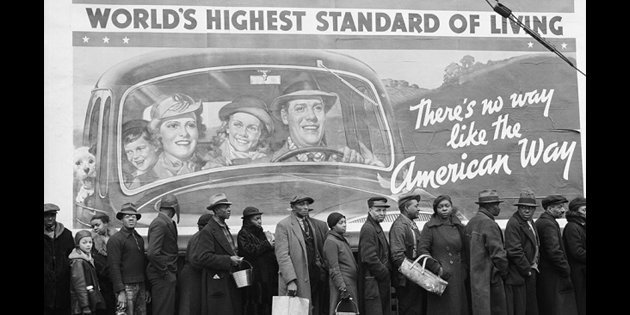
Does the global elite still dominate political discourse and policy?
by James Mallon
While it is largely accepted that globalisation is an ‘ever stronger force affecting everything from our income levels, our employment prospects and the extent of our knowledge and information’ (Milanovic, 2013), the world is not united under a single government and many of the global issues we face are the result of politics on the nation state level.
In this post I am going to focus on the inequality and social problems that come from elitist policy makers and globalisation.
Social problems that arise from increasing globalisation, elitist policy makers and economic struggle are wide-ranging and include the levels of trust between individuals or children’s educational performance all the way through to homicides, life expectancy and infant mortality.
In his book Global inequality: a new approach for the age of globalization, Branko Milanovic points out that ‘greater openness (commercial interchange between individuals from different countries) will have political consequences not at some imaginary worldwide level but within actual countries where the people who are affected by trade live, such as China and India.
And it’s not new – a recent article written by Jim Edwards on the Independent website linked the current free trade disputes to 14th century China and the destruction of their prized ‘treasure fleet’. He pointed the finger at the influential political elite inside the Emperors civil service campaigning for it’s dismantlement because of their fears over the emergence and growth of a newly rich merchant class. The headline reads – “500 years ago, China destroyed its world dominating navy because its political elite was afraid of free trade. Sound familiar?”.
In order to keep a tight grip on their power and dominance the fleet was destroyed and China retreated into itself. Whilst this may have protected the wealth of the elites it ultimately served as an anchor holding China down. On the other side of the planet a few hundred years later, the industrial revolution exploded in Europe and China’s influence on the world dwindled. Edwards points out that China has only caught up to the West in the last ten years as a direct result of it’s elitist policy dictators protecting their own individual wealth and influence while simultaneously allowing the growth of economic inequality and protectionist ideas that would effectively sink China’s power and influence on the global stage.
Although Edwards accepts that ‘tracing a line from the treasure fleet of the 14th Century to Trump and Brexit (free trade disputes) might be a bit of a stretch’, he elaborates that when societies become extremely unequal, elites tend to gain enough power to use the government to secure artificial advantages that serve the purpose of shielding them from competition. He questions whether the ‘fear of trade might be a function of increasing inequality in the west’ and ‘whether we are failing to see the danger of elite driven rentier mercantilism’ (A process of industry protection by governments and the elite)
Thomas Jefferson once said “The issue today is the same as it has been throughout all history, whether man shall be allowed to govern himself or be ruled by a small elite”, Unfortunately it seems that this trend of elitist policy makers is still very much a dominating aspect of society and whilst the influence of today’s elite may be slightly different from the historical elite their dominance is still obvious.
Inequality.org – a project of the institute of Policy Studies showed that 0.334% of the global population owns a staggering 33.2% of global wealth, they found this by analysing the Forbes 2016 Billionaire List and the IMF 2016 Gross Domestic Product Projections which unearthed this colossal wealth disparity. The top ten billionaires globally have a combined wealth that is greater than the total goods and services that most nations produce on an annual basis! These nations include Nigeria, Belgium, Iran, Norway, Thailand and the United Arab Emirates.
A 2014 study titled: Testing Theories of American Politics: Elites, Interest Groups and Average Citizens found that ‘compared to economic elites, average voters have a low to non existent influence on public policies. Not only do ordinary citizens not have uniquely substantial power over policy decisions, they have little or no independent influence on policy at all.’ And to add insult to injury ‘regardless of whether a small minority or a large majority of American citizens support a policy, the probability of policy change is nearly the same — approximately 30%.’
The Organisation for Economic Cooperation and Development (OECD) is a group of democratic countries who support free market economies and work together to discuss and develop economic and social policy. Their website’s homepage shows a quote by OECD Secretary-General that reads – “We have reached a tipping point. Inequality can no longer be treated as an afterthought. We need to focus the debate on how the benefits of growth are distributed. Our report ‘In it Together’ and our work on inclusive growth have clearly shown that there doesn’t have to be a trade off between growth and equality.”
However, it remains that continued eagerness for growth comes with a continued eagerness for profit. And as long as the policy dictators of the political and economic elite continue to hold the wealth of power they currently do, global equality can only be a pipe dream.
Other references

0 Comments